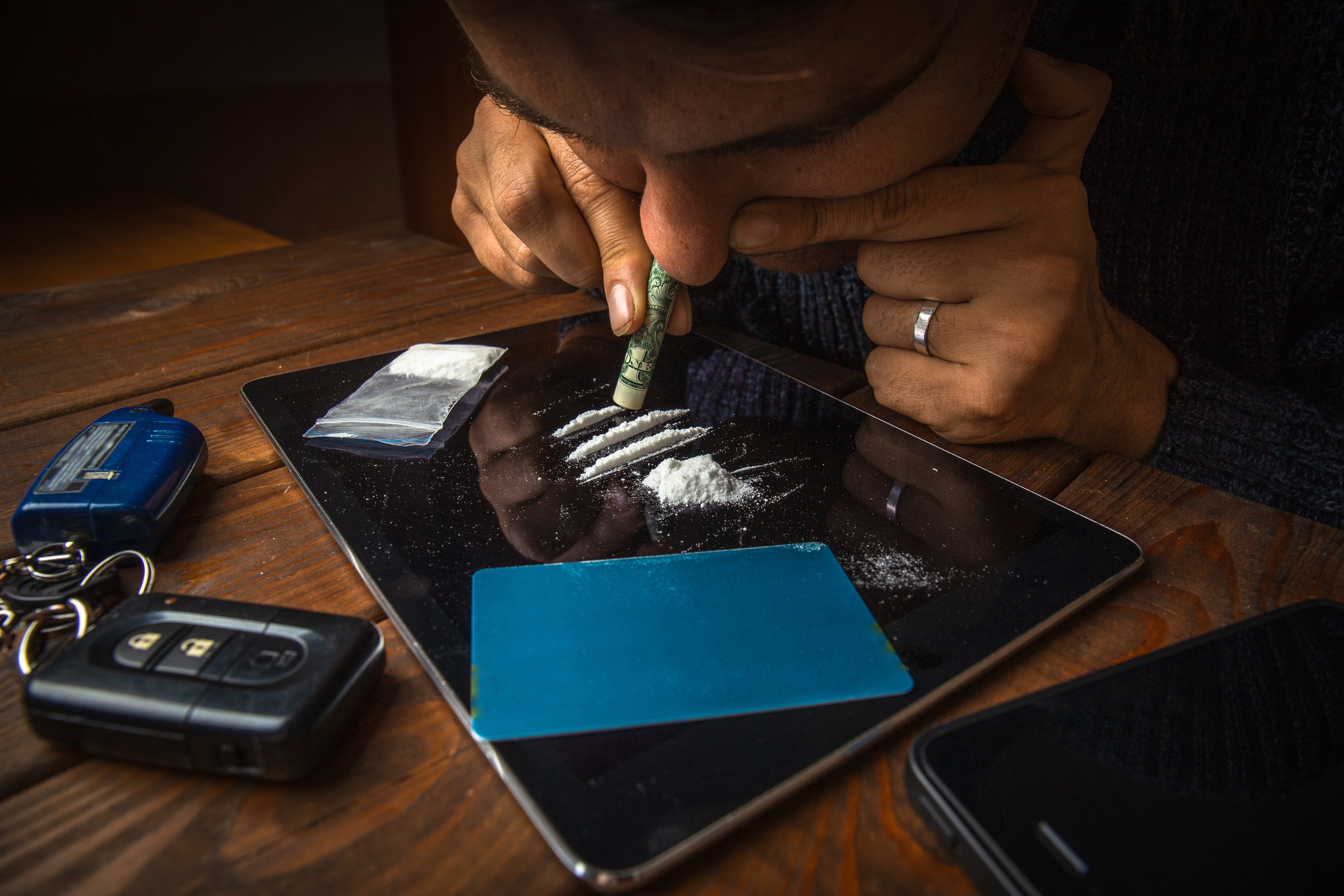Divorce and Addiction: What Not To Do
Watching the person you love spiral downward into the complicated challenges of addiction is heart-breaking and certainly nothing you ever imagined on your wedding day. By the time you are ready to help a spouse with addiction a great deal of emotional damage may have already been done to your marriage.
Atlanta divorce attorney Pete Chambers, who specializes in divorce with addiction issues emphasizes, “Truly helping an addicted spouse requires the nonaddicted spouse to first recognize their own contribution in the dysfunction and chaos, and acknowledging and doing work on their codependency. Analogous to all airlines requesting you put your own mask on first, you must help yourself before helping someone else.”
So how do you help without making the problem worse, or destroying yourself in the process?

Defining Addiction
Addiction is a chronic disease that causes the individual to seek out and continue abusing substances and behaviors that are harmful to themselves and those around them despite knowing their destructive nature.
Once you can acknowledge addiction as a disease, you can then make choices to first take care of yourself, and then to try and help your addicted spouse, whether you remain in the marriage or not.
When Addiction is Harming the Relationship
The danger signs that addiction is creating problems in the relationship should never be ignored. Treatment can help, but it is unlikely to be a smooth path forward; and things should never be expected to return to “normal.” Addiction is a family disease, and the entire family needs to make changes to truly help and support the addicted spouse.
As challenging as it may be, allowing your spouse’s addiction to continue without intervention is harmful to your spouse and can promote severe consequences for yourself and your family.
Addiction is a progressive disease which only gets worse over time.
If you’re unsure, become familiar with the physical, behavioral, and financial signs of addiction.
How to Help Your Addicted Spouse
Once you know your spouse has a problem that can no longer be ignored, there are several steps you will want to consider taking.
• Seek out the help of a healthcare provider or mental health professional for a treatment plan.
• Hire an Intervention Specialist like Heather Hayes & Associates to facilitate an intervention and to coach and guide everyone through the process for a successful intervention.
• Find a recovery program like Alcoholics Anonymous or Narcotics Anonymous.
• Join a support group like Al-Anon, or Families Anonymous, or Nar-Anon for your own mental health well-being and to work on your own recovery path.
It’s also important to be patient. The road to recovery is bumpy, messy, is never a straight path, and can be highly frustrating.

What Not to Do When Helping an Addicted Spouse
One of the dangers when in a relationship with an addict is that it can be very easy to unknowingly enable the behavior to continue. Much of the time this happens because of codependency with the addict. It is a very difficult task trying to navigate staying on the correct side of that invisible line between helping your addict to seek recovery or hurting your addict by enabling their behaviors and addiction to continue and escalate.
Codependency is when one partner is the caretaker, to their own sacrifice and detriment, failing to maintain healthy boundaries and look after themself, while the other person takes advantage of the situation. This happens often in relationships involving addiction when one spouse enables the addict, covers for the addict, or placates the addict to make life easier for themself and family members. When children are involved, the consequences often result in a child who repeats the pattern in their own relationships as an adult.
There are many things you should do to help an addicted spouse. But the number 1 is to avoid enabling the addict and their behaviors.
To be the most effective help to an addict don’t:
Cover Up the Addiction – Hiding liquor bottles, prescription meds, needles or other drug paraphernalia only helps the addict continue the behavior without accountability. Hiding the financial trauma caused by addiction is also enabling. Facing these hardships can result in harsh conversations and gaslighting by the addict. Prepare yourself for how hard it can be to avoid covering up with family, friends, and even professional connections.
Avoid the Issue – Not unlike covering their tracks, avoiding the issue won’t make it go away. Remember that addiction is a disease and treat it that way. Seek professional help from a medical and/or mental health professional.
Lie for Your Addicted Spouse – Don’t get in the habit of calling in sick for your spouse or making excuses for their behavior. Don’t create explanations for family or friends when your spouse exhibits emotional outbursts. Let your spouse take responsibility for their own actions.
Join Your Spouse by Drinking or Using Drugs – Participating in alcohol and drug use when you know your spouse is struggling with addiction only encourages their addiction. You may want to party, and it may seem easier to get along with your spouse when they are not sober, but you are not helping the problem.
Let Your Loved One Abuse You – At the heart of codependency is a feeling of “this is what I deserve.” The truth is you are not the reason for your spouse’s addiction, and you can’t allow yourself to be mistreated. If your spouse is emotionally or physically abusing you, you need to form a safe exit strategy for you and your children.
This may require the help of local law enforcement to establish a restraining order. A legal professional or mental health provider can advise you on the best ways to seek safety.
Neglect Your Own Needs – Living with a spouse challenged by the disease of addiction is exhausting and emotionally draining. Part of this process will be setting boundaries within your marriage and consequences for when those boundaries are breached. Take time to care for your own personal needs or you won’t have the energy left to help your partner.
Expect Things to Return to Normal – Spouses suffering from addiction will be working on their recovery for the rest of their lives. The process of recovery is enormously helpful (and essential) to the addict, providing a journey of discovery and healing. Your relationship will be forever changed by this journey. Accept that you, your spouse, and your marriage will be forever changed. And in many situations, those changes are for the better.
When Addiction Leads to Divorce
In the U.S. nearly 30%-40% of all divorces are the result of substance abuse and alcoholism issues. Addiction often leads to a loss of trust and intimacy between partners, lack of communication, and in some cases physical and/or emotional abuse.
When the illness of addiction has damaged the marriage beyond repair, divorce may be the best path forward. The decision is never easy, emotional for the couple and their extended families, and is seldom without legal and financial challenges.
Finding an Atlanta trusted divorce attorney who understands the challenges of addiction is essential to ensuring the complex legal and financial issues are fairly and efficiently addressed.
Your divorce attorney needs to be nonjudgmental, putting you at ease at a time when you will be sharing intimate and privileged information. An experienced family law attorney can walk you through the complex legal process and how addiction can significantly impact the court’s decisions.
What Should You Do Now?
Now is the time to protect yourself to ensure alimony, child support, parenting schedules, and child custody are addressed.
If your situation is also complicated by a high-net worth financial picture, your attorney needs to be skilled and prepared to protect you and your children’s future economic stability.
Chambers Family Law attorneys are experienced and equipped to successfully provide non-judgmental, compassionate, and invaluable assistance when addiction plays a role in your divorce. Speak to a Chambers Family Law attorney right now at 404-795-5090.
